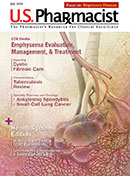A new Taiwanese study investigated the long-term outcomes of initiating SGLT2i in patients with estimated glomerular filtration rates less than 20 mL/min/1.73 m2, comparing the risk for dialysis, cardiovascular events, and death between SGLT2i users and nonusers in patients with T2D.
The target trial emulation study using information from Taiwan’s National Health Insurance Research Database (NHIRD) was published in Annals of Internal Medicine.
For the study conducted May 1, 2016, to October 31, 2021, there were 23,854 SGLT2i users and 23,892 SGLT2i nonusers who were selected from the NHIRD among patients with T2D and stage 5 CKD.
The researchers’ focus was on the risks for dialysis, hospitalization for heart failure, acute myocardial infarction (AMI), diabetic ketoacidosis (DKA), acute kidney injury (AKI), and all-cause mortality between SGLT2i users and nonusers.
The results indicated that in the intention-to-treat model, SGLT2i use was associated with lower risks for dialysis (hazard ratio [HR], 0.34; 95% CI, 0.27-0.43]); hospitalization for heart failure (HR, 0.80; 95% CI, 0.73-0.86), AMI (HR, 0.61; 95% CI, 0.52-0.73), DKA (HR, 0.78; 95% CI, 0.71-0.85); and AKI (HR, 0.80; 95% CI, 0.70-0.90) compared with no SGLT2i use. No difference was detected, however, in the risk for all-cause mortality (HR, 1.11; 95% CI, 0.99-1.24]). The authors reported that the Kaplan–Meier curves and subgroup analyses also showed that initiation of an SGLT2i in stage 5 CKD was associated with a lower risk for long-term dialysis than no SGLT2i use.
Cautioning that the results might not apply to patients without T2D, the authors concluded, “This emulated target trial showed that SGLT2i use was associated with a lower risk for dialysis, cardiovascular events, DKA, and AKI than no SGLT2i use in patients with T2D and stage 5 CKD.”
The content contained in this article is for informational purposes only. The content is not intended to be a substitute for professional advice. Reliance on any information provided in this article is solely at your own risk.






